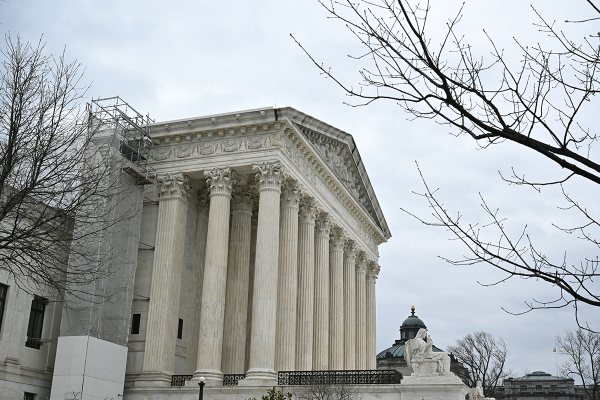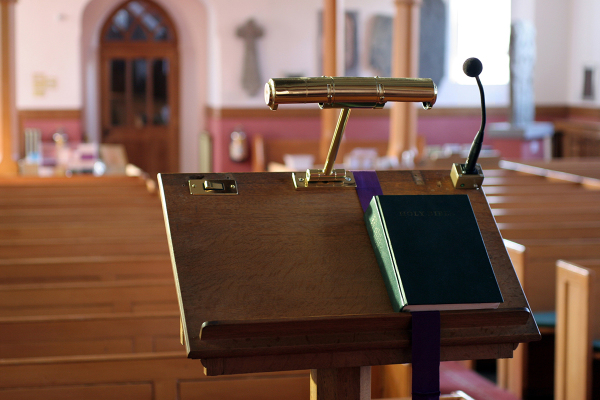Writings Show Early Christian Views on Jesus' Divinity
It's no surprise that the No. 2 man in the Vatican's powerful doctrine agency, Archbishop Angelo Amato, has urged a boycott of the film ''The Da Vinci Code,'' which opens Friday.
He said Dan Brown's novel, on which it is based, is filled with "offenses, slander, historical and theological errors" concerning Jesus and Christianity.
One crucial issue is the novel's statement, presented as fact by a historian, that Jesus was seen as a mere mortal until A.D. 325, when the Emperor Constantine "turned Jesus into a deity" at the Council of Nicaea.
Brown's assertion agrees with modern-day Jehovah's Witnesses, Christadelphians, the Restoration Fellowship and The Way International, raising this pop culture question: When did belief in Jesus' divinity originate? The situation was actually the opposite of Brown's scenario.
Except for one faction, early heresies said Jesus was divine but not quite human. Nicaea defined the long-existing belief in both Jesus' full humanity and divinity.
Brown's novel appeared simultaneously with a magnum opus on this: "Lord Jesus Christ: Devotion to Jesus in Earliest Christianity" by Larry Hurtado of Scotland's University of Edinburgh, followed by Hurtado's "How on Earth Did Jesus Become God?" (both published by Eerdmans).
Hurtado starts from New Testament letters that Paul wrote between the late A.D. 40s and early 60s.
Philippians 2:6-11, for example, is thought to repeat an earlier hymn and says Jesus "was in the form of God" but "did not count equality with God a thing to be grasped" and was born a man. Further, at Jesus' name every knee should bow and every tongue confess that "Jesus Christ is Lord" (using a title for God).
This isn't Nicaea's precise formulation. But within a couple of decades of the Crucifixion, Hurtado comments, Jesus "shares a unique status with God" and receives "expressions of devotion that are otherwise reserved for God alone."
Later in the first century, Jesus' divinity was taught in the final versions of the four New Testament Gospels that we know. There's corroboration from a pagan outsider, Pliny the Younger, reporting in A.D. 112 from what is present-day Turkey to the Emperor Trajan. He wrote that during worship, Christians "chant antiphonally a hymn to Christ as to a god."
Worship of Jesus wasn't simply some carryover from pagan Romans' deification of human figures, such as the emperors, Hurtado contends. All the earliest worshippers of Jesus were devout Jews who were religiously insulated from paganism and devoted to the one God. How Jesus' divinity related to Jewish monotheism, a complicated question, involved centuries of further discussion.
Likewise, Paul Hartog of Iowa's conservative Faith Baptist Theological Seminary, writing in Christian Research Journal, cites New Testament passages that call Jesus God, among them John 1:1, Titus 2:13, Hebrews 1:8 and 2 Peter 1:1. But mainly, Hartog surveys the earliest Christian writers after New Testament times. Examples:
Ignatius of Antioch, martyred about A.D. 107, described Jesus with phrases including "Jesus Christ our God," "God in the flesh" and "God himself was manifested in human form."
Manuscripts say Polycarp wrote, about A.D. 115, about "our Lord and God Jesus Christ."
The second epistle of Clement, the earliest surviving Christian sermon from that era, preached that believers should "think of Jesus Christ as of God, as the judge of the living and the dead."
Justin Martyr, executed for his faith about A.D. 165, said Jesus is "God and man" and "deserving to be worshipped as God."
Melito of Sardis preached about A.D. 170 that Jesus is "by nature God and man" and that "the almighty God has made his dwelling through Christ."
Athenagoras of Athens wrote in A.D. 178 that Christians "speak of God the Father, and of God the Son, and of the Holy Spirit" and "declare both their power in union and their distinction in order."
Irenaeus of Lyons wrote around A.D. 180 that everyone believed Jesus "was very man and that he was very God," and that his title Emmanuel signifies "his essence, that he is God." Irenaeus continued, "God, then, was made man, and the Lord himself did save us."






















